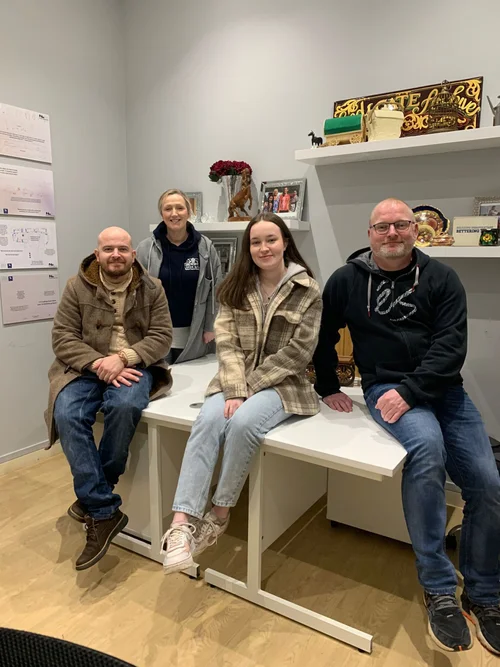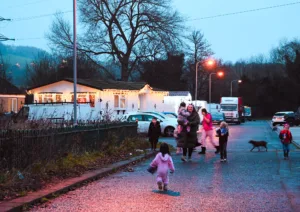Ellie – How our Mental Health Team has supported our members
We try to help with all aspects and listen carefully to what our members tell us.

I’m sitting in a small meeting room in our offices with a member. She’s got loads going on, lots of papers to sort through, she’s missed several letters from the DWP, and her benefits have been stopped. We’re on hold. She lives roadside and doesn’t have an address so she uses our address. She loves coming to GATE because it’s a break. Even though we’re doing lots of life admin, she still feels like it’s a break from being on call for a large family 24/7.
I make her a cup of tea and some toast and encourage her to take 5 minutes to breathe and eat. She’s lost a lot of weight and we talk about that. “It’s the stress,” she says.
She also finds it hard coming to GATE though. It has memories of people she loved who were lost too soon, who volunteered, worked, or were members here. She tells me about them and what they meant to her. It’s helpful to tell someone that she misses them.
Then the hold music stops and we’re back onto DWP.
“What do you mean it’s a care of post address?”, “Does she not have a council tax bill?”, “Are social services involved?”
“Isn’t my life just the most messed up thing?” she says with a wry smile.
We have recognised for a long time that our members face a big hill to climb to stay mentally well. From racism in everyday interactions to the absolute scarcity of accommodation, life can sometimes seem to offer a never-ending supply of challenges.
That’s why everything we do at Leeds GATE is about mental health. We try to help with all aspects and listen carefully to what our members tell us, from practical help like showers and washers for homeless families to advocacy support like filling in forms or helping with phone calls, to women sharing skills in community groups and building up their confidence.
Over the last five years, I have been privileged to help build a targeted mental health support offer alongside talented and committed staff. This journey started with a mental health advocacy offer and the delivery of Safetalk training to our communities. This was all grant funded and was a very small resource to what was a very big problem. Then came a contract through Live Well Leeds; we think it may have been the first ever targeted and statutory funded mental health offer for Gypsies and Travellers. This enabled us to provide one-to-one targeted support to a caseload of eight people at any one time. I am really happy to say that we are announcing that with the support of West Yorkshire ICB, we can extend this offer to our members across West Yorkshire.
At times it has felt like nobody else was interested in the shockingly poor mental health outcomes and suicide rates our members faced. I have cried on the phone with our chair of the board as we heard about another young life lost and wondered what to do. As we move into this next chapter I have been reflecting on our role as an organisation.
Having hope and holding hope seems like one of our important roles: hope that things will get better for individuals and communities, hope that you can share how you feel and not feel shame, hope that people will notice, listen, and care about what’s happening for Gypsies and Travellers.
Compassion is everything in our work. To understand that everyone deserves compassion and compassion is a gateway to engagement. Treating people as you would want to be treated when you reach out for help.
Understanding that reaching out for help is hard and brave in a society where doing so can victimise you, that the price of getting help can be the high cost of choice and agency. Instead of “what is wrong with you?”, we ask “what has happened to you?” and demonstrate that we will join our members where they are and work alongside them.
Working at a pace set by the individual, ensuring privacy and listening really well are all vital. I know that we have a fantastic team who bring their lived and professional experience to providing a quality, caring, person centred service to our members. They will deliver a mental health and wellbeing service designed by our members, for our members and crucially they will provide hope.


